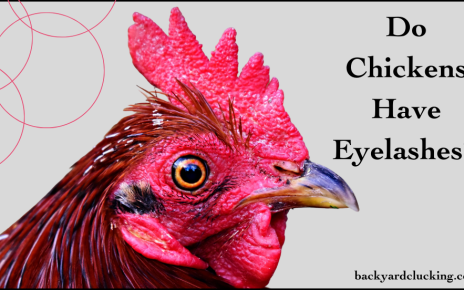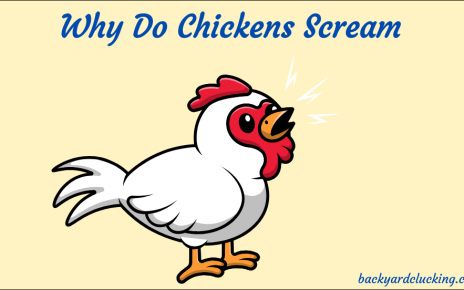Do you ever wonder what goes on in the hen house? Hens are popular and prolific birds found all over the world. But one enduring question that has been asked throughout centuries is – do hens eat their chicks?
It may seem strange and paranoid to ask, but it has been reported in some cases around the globe! Read on to learn more about this fascinating behavior of hens and find out if there’s any truth to this rumor.
Do Hens Eat Their Chicks?
Under normal circumstances, hens do not eat their chicks. However, in cases of severe stress or a lack of essential nutrients, a hen may exhibit cannibalistic behavior, potentially harming or eating her chicks.
This behavior is relatively rare and is usually a sign of an unhealthy environment or poor diet. It is crucial for chicken owners to provide adequate space, nutritious food, and a stress-free environment to prevent such occurrences.
However, not all mother hens exhibit this behavior and many will actually go to great lengths to protect and nurture their babies. The world of chickens, like any animal kingdom, is full of fascinating and sometimes brutal behaviors that remind us of the complexities of nature.
Lastly, overcrowded coop conditions can lead to aggression, under which chicks may become targets.
Read more Why Do Chickens Kill Their Babies?
Why Would a Hen Eat its Chick?
Stress often triggers unusual behaviour in animals. A lack of sufficient food, crowding, or sudden environmental changes can cause hens to act drastically. In extreme cases, this might include eating their chicks.
Some experts believe this behaviour is an instinctual survival mechanism, as hens may view their chicks as competition for resources in times of scarcity. Additionally, overcrowded conditions can lead to aggression and a “survival of the fittest” mentality among chickens.
Related post Will a Non-Broody Hen Adopt Chicks?
Understanding the Behaviour
Although it may seem unnatural, hens could eat their chicks under certain circumstances. Stress, nutrient deficiencies, or a simple mistake could trigger such behavior. It’s important to understand this is a rare occurrence, and you can avoid it with proper care and attention.
Providing a stress-free environment, balanced nutrition, and adequate space for hens and their chicks can significantly reduce the chances of this happening.
Common Misconceptions
It is important to note that not all instances of a hen eating its chick are due to aggression or stress. Sometimes, newly hatched chicks can suffer from deformities or health issues that cause them to be rejected by the mother hen. In these cases, the hen may instinctually remove the chick from the group to prevent the spread of disease.
Some Causes of Cannibalism in Hens
Nutrient Deficiencies
One of the primary reasons hens might eat their chicks is due to deficiencies in their diet. A lack of protein or calcium can lead to this behavior. Ensuring a balanced diet is crucial in preventing such occurrences.
Overcrowding and Stress
Overcrowding can lead to stress in hens, which may result in this unusual behavior. Providing sufficient space for hens and chicks to move around can help reduce stress levels.
Accidental Pecking
Sometimes, hens may accidentally peck their chicks while trying to clean them or remove shell fragments. If the chick bleeds, the sight of blood might trigger the hen to peck further, leading to injury or even death.
Can We Prevent this Behaviour?
Yes, we can take several preventative measures. Providing a stress-free environment, proper nutrition, and adequate space is vital to preventing this behaviour. Additionally, separating aggressive hens or chicks from the group can also help.
Some Preventative Measures
Balanced Diet
A balanced diet rich in protein and calcium can help curb this behavior. Regular access to fresh water is also vital.
Adequate Space
Ensuring hens and chicks have ample space to move about and are not overly crowded can significantly reduce stress levels and prevent aggressive behavior.
Use of Anti-Pecking Sprays
You can use anti-pecking sprays on chicks, which taste unpleasant to hens. That dissuades the hens from pecking at them.
Conclusion
In conclusion, while it may seem shocking, hens could eat their chicks under certain stressful conditions or due to nutritional deficiencies.
However, this behavior differs from the norm and can be prevented with proper care, attention, and management. By ensuring a balanced diet, ample space, and a stress-free environment, we can help keep both hens and chicks safe and healthy.


